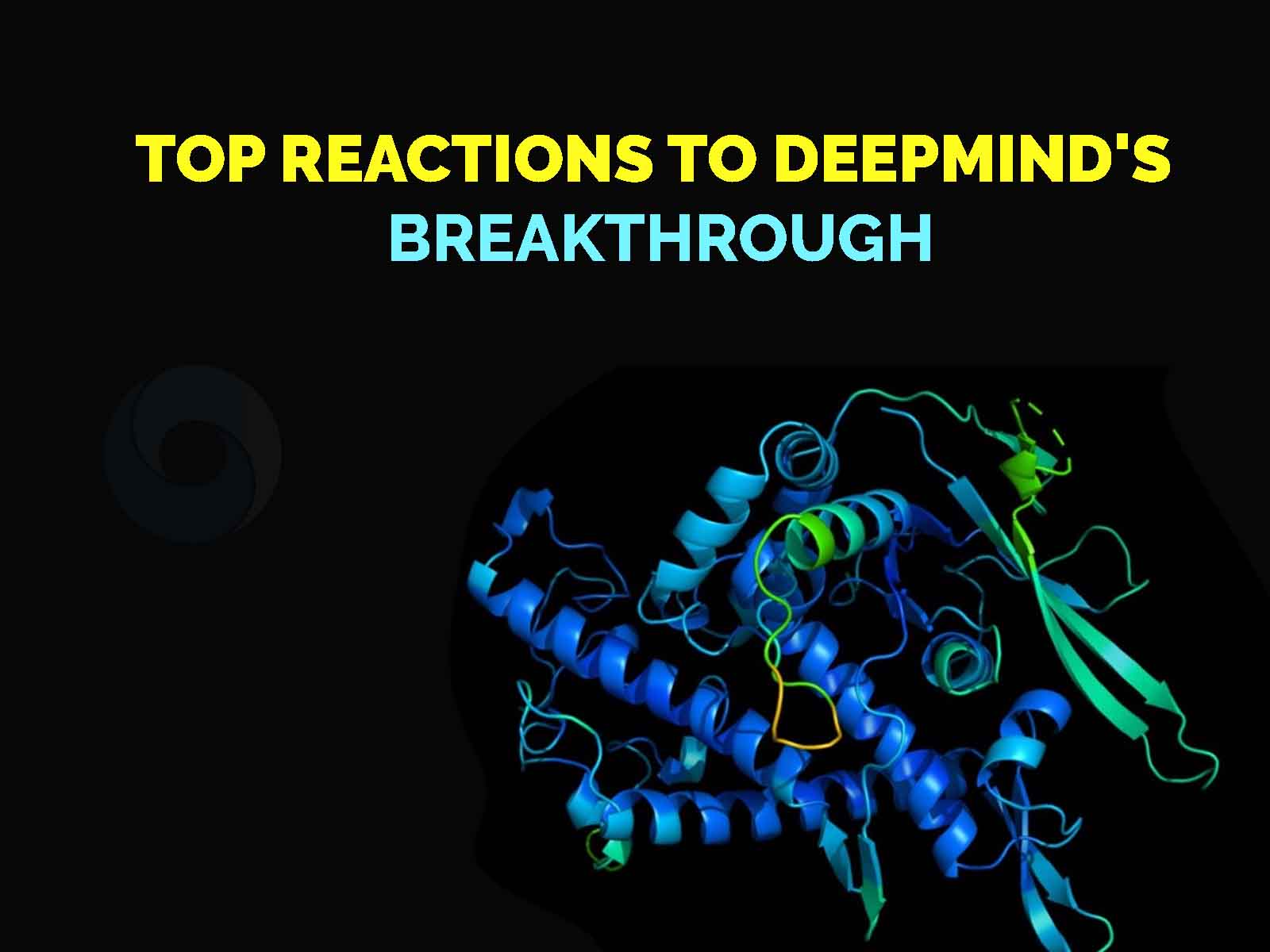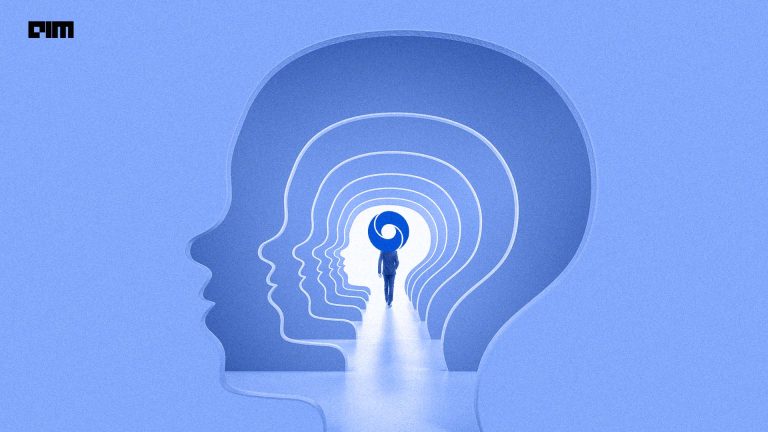In the world of AI and biological sciences, this has to be one of the most significant times in the whole year; maybe even bigger. Google’s DeepMind has used artificial intelligence to solve one of the grandest problems of biological sciences. It has achieved the feat of predicting how proteins curl up from a linear chain of amino acids into 3D shapes. The complex curls of this chain carry out main mechanisms of life. The key to understanding these mechanisms of life lies with figuring out what the protein does.
The leading structural biologists and the organisers of the biennial protein-folding competition, Critical Assessment of protein Structure Prediction (CASP), recognised DeepMind’s AI system AlphaFold as a solution to this 50-year-old challenge. This is groundbreaking in many ways as this would pave the way for speeding up the creation of new medication. In the current context, this innovation would also mean that it would accelerate the research for COVID-19 vaccine.
Quite expectedly, the research community and other enthusiasts couldn’t keep calm and pretty much equivocally lauded this breakthrough innovation. We capture some of the reactions here.
Demis Hassabis
Starting with the head honcho of DeepMind itself, Demis Hassabis who is the founder and CEO of DeepMind said that he was ‘thrilled’ about the prospect of this innovation has a significant impact on understanding diseases better and towards faster drug remediation. It is interesting to note that Hassabis, despite his company’s several previous breakthroughs in the AI-based gaming industry, has continually stressed the importance of utilising AI to understand the world better. In an interview, he had very popularly said, “solving intelligence, and then using that to solve everything else.”
Thrilled to announce our first major breakthrough in applying AI to a grand challenge in science. #AlphaFold has been validated as a solution to the ‘protein folding problem’ & we hope it will have a big impact on disease understanding and drug discovery: https://t.co/P53t2TxVRa
— Demis Hassabis (@demishassabis) November 30, 2020
Sundar Pichai
Congratulating DeepMind’s innovation, Google CEO Sundar Pichai said that AlphaFold would help understand the fundamentals of life and in solving a range of problems. Google had acquired DeepMind in 2014 by closing the deal for $525 million to have a stake in the potentially ‘world-changing’ research that smaller companies like DeepMind are undertaking.
.@DeepMind's incredible AI-powered protein folding breakthrough will help us better understand one of life’s fundamental building blocks + enable researchers to tackle new and hard problems, from fighting diseases to environmental sustainability. https://t.co/kpr8EAx34h
— Sundar Pichai (@sundarpichai) November 30, 2020
John Moult
The co-founder and chairman of CASP, Professor John Moult termed it as a ‘special moment.’
Prof Venki Ramakrishnan
Professor Venkatraman ‘Venki’ Ramakrishnan, President of the Royal Society also praised the innovation heavily. Inferring that it was a futuristic discovery, he said that it happened ‘decades before’ experts of the field would even predict it.
It must be noted that Ramakrishnan won a Nobel Prize in 2009, along with American biophysicist and biochemist Thomas Steitz and Israeli protein crystallographer Ada Yonath, for research in ribosomes’ atomic structure and their function.
The Office For Artificial Intelligence
This organisation oversees the implementation of the UK’s artificial intelligence strategy and is the secretariat to the UK AI Council commemorating the achievement. The Office called it a proud achievement for the UK’s AI capabilities and the entirety of the scientific community.
DeepMind's breakthrough in protein-folding could accelerate research in drug design, treating diseases, and environmental sustainability.
— Office for Artificial Intelligence (@OfficeforAI) November 30, 2020
A proud achievement for UK AI.
A monumental feat for science.
Well done to everyone @DeepMind.https://t.co/aZJh2pUSlH#AlphaFold #CASP14
Garry Kasparov
Former World Chess Champion and Russian Chess Grandmaster Garry Kasparov congratulated the team in a rather hilarious way. He wrote that he was glad the team was ‘leaving the chess players alone’ for some time. This sly remark is in context to DeepMind’s other offering AlphaZero, a system that teaches itself how to master the game of chess, from scratch.
Congrats to @demishassabis and @DeepMind! Glad you're leaving the chessplayers alone for a little while! https://t.co/AKQLzmjr2F
— Garry Kasparov (@Kasparov63) November 30, 2020
Patrick Collison
Collison, the CEO of Stripe, tweeted to commend the innovation from DeepMind. Stripe is an American financial services company that offers payment processing software for e-commerce websites and apps. It is currently one of the highest valued startups in the world and is valued at $35 billion (as of 2019).
What a morning for science and technology! More excellent Moderna vaccine news and DeepMind makes a giant leap in single domain protein structure prediction. Humans are awesome! ⚗️🖥📈
— Patrick Collison (@patrickc) November 30, 2020
Fei-Fei Li
Dr Li, the inaugural Sequoia professor at Stanford University’s Computer Science Department, also tweeted to congratulate the team. Dr Li, former Google vice president, is also the founder of AI4All, which is a non-profit organisation that is educating budding AI technologists and thinkers.
Congrats @demishassabis and the entire Team! So wonderful to see AI’s advances in scientific discovery! https://t.co/McCfunHYOA
— Fei-Fei Li (@drfeifei) December 1, 2020
Chris Wigley
The CEO of Geonomics England, which is a company under the UK’s Department of Health and Social Care, called this development a ‘fantastic news’.
Fantastic news for biology and for the UK’s like sciences ecosystem 👍🏼👍🏼👍🏼 https://t.co/X3vixIDa3P
— @chris_wigley (@chris_wigley) November 30, 2020
Balaji Srinvasan
While the entire industry has been noticing the achievement of this groundbreaking innovation, entrepreneur and former CTO of Coinbase, Balaji S Srinivasan pointed out a few possible loopholes. He noted the fact that the full paper was not available as well as the possible error with respect to the NMR-derived structure. Srinivasan further scrutinised the research of AlphaFold as it is specific to the domain and not to the whole protein as yet.
Some caveats:
— Balaji Srinivasan (@balajis) November 30, 2020
– it’s for domains rather than whole proteins so far
– full paper not available yet
– predicted structures appear to have high error with respect to NMR-derived structures
Still, it’s a highly credible group and they’ve delivered before. https://t.co/41ZQGQna7P
Elon Musk
Elon Musk, the founder of SpaceX, congratulated the team with a humble ‘Congrats!’
Congrats!
— Elon Musk (@elonmusk) November 30, 2020
Adam Rutherford
British geneticist Dr Adam Rutherford, in a series of tweets, called this innovation ‘incredibly important for fundamental biology.’
That will be incredibly important for fundamental biology, for studying diseases, and for designing drugs that treat diseases that are fundamentally born of misfolded proteins.
— Dr Adam Rutherford (@AdamRutherford) November 30, 2020
James Wang
James Wang, a research analyst at ARK Invest, called this innovation as one of England’s major contributions to computer science since Babbage and Turing’s time.
A log view of the above: no progress, no progress, no progress, oh wait, SOLVED!https://t.co/qEuUuWD6Ej
— james (is hiring crypto mktg ppl) (@draecomino) November 30, 2020


















































































